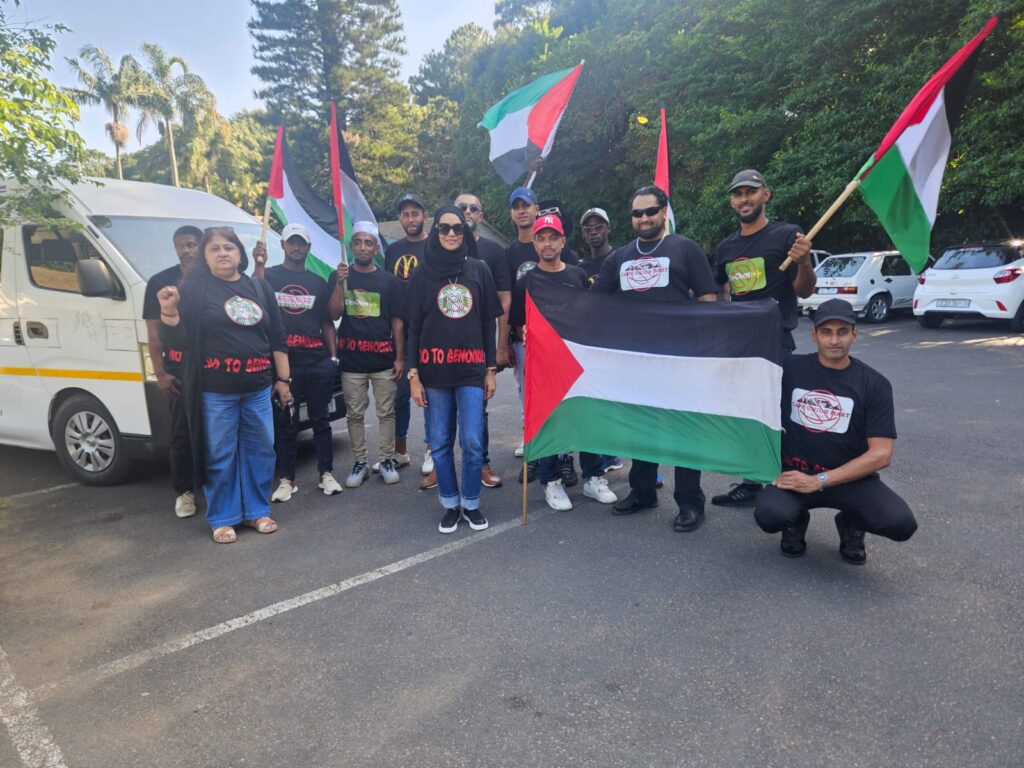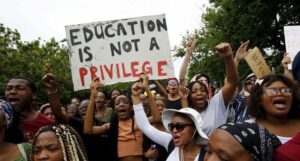
By Azra Hoosen
South African civil society, Muslim organisations, and justice movements have come together to call for conscious consumerism, urging local store owners to reconsider stocking products linked to Israel.
An open letter issued to businesses across KwaZulu-Natal appeals to the conscience of store owners and shoppers alike. The letter is part of a growing campaign aimed at peaceful economic resistance against Israel’s actions in Gaza.
The boycott calls for the removal of products associated with companies that support or operate in Israel. Major brands such as Coca-Cola, Clover, ZZ2, and Nestlé are spotlighted.
Speaking to Al-Qalam, Saydoon Nisa Sayed, leader of the South Africa Palestine Movement (SAPM), said: “We see the genocide unfolding in front of us. So, we decided to act and call for the removal of products supporting apartheid Israel from South African stores.”
Every Friday, activists gather in Overport, Durban, to picket stores that continue to stock these products. “Overport has a majority-Muslim residency and shopper base. People shop there out of convenience, but many of these stores still stock items linked to Israel, despite there being no lack of alternatives,” said Sayed.
Clover is majority-owned by an Israeli company, and Coca-Cola Israel operates within the occupied territories. The campaign is not just about brands, but a broader ethical demand: end the profit pipeline to apartheid.
Dr Lubna Nadvi, a long-time Palestine solidarity activist and political analyst, believes that no tank or bullet can match the impact of a united consumer boycott. “Consumers have the power of the purse, which gives them the ability to withhold funds from stores, brands and products which support Apartheid Israel. With many governments failing Palestinians, it’s up to civilians to use what power they have — and that includes where they spend their money,” she said.
Some critics have dismissed the boycott as symbolic, but Sayed disagrees. “South Africa wouldn’t have its democracy if other countries hadn’t supported our own boycott movement. We are asking people to boycott not only goods but also the stores that continue to sell them.”
This message has found powerful resonance beyond the Muslim community. One of the signatories includes South African Jews for a Free Palestine (SAJFP). As a Jewish voice opposing genocide, SAJFP believes boycott, divestment, and sanctions are “central to the strategy to force Israel to dismantle the apartheid, settler colonial state.”
Rina King, a member of SAJFP, said civil society’s consumer behaviour holds immense power: “We saw how boycotts, sanctions and divestment worked against the South African operative regime. They could not continue functioning as an apartheid state. We believe the same pressure can change the political system in Palestine/Israel.”
For Nasiha Soomar, an executive member of the KZN Palestine Solidarity Forum, the campaign is political and spiritual: “You cannot claim to care about human rights and still fund genocide. Every time you buy Coca-Cola, every time you load a ZZ2 avocado into your basket, you are helping supply the bullets, the tanks, and the bombs that are killing women and children in Gaza.”
She noted that growing discomfort among shoppers is a good sign. “To shoppers, if you feel conflicted, good. That means your conscience is alive. But do not stop there. Let it push you into action. Every rand you spend is either sustaining life or fuelling apartheid. There is no middle ground. Pick a side,” said Soomar.
While some stores have begun quietly removing products, Soomar is critical of half-measures. “We are not here for half-measures or quiet symbolism. If you know what is happening in Gaza, and you still profit from it, you are choosing blood over principle,” she said.
She pointed to contradictions within the community: “You cannot sponsor a protest in the morning and sell Clover and Coca-Cola in the afternoon. That’s not resistance, it’s profiteering.”
Soomar asserted that if stores ignore the call, the campaign will escalate: “Peacefully, strategically, and publicly. We will protest outside your stores. We will name you. And we will not stop. We are not asking. We are demanding. Silence is betrayal, and we will not be silent.”











